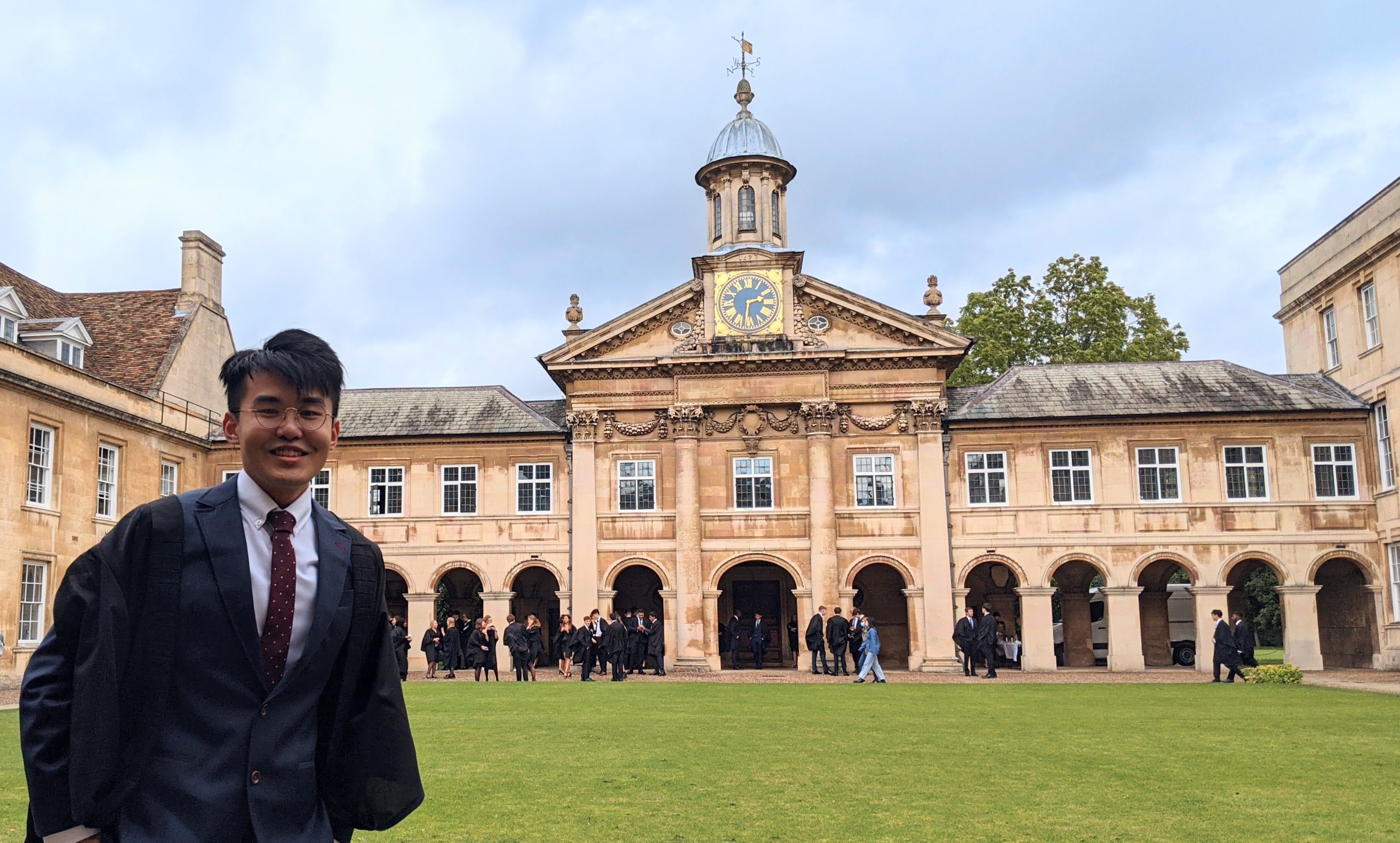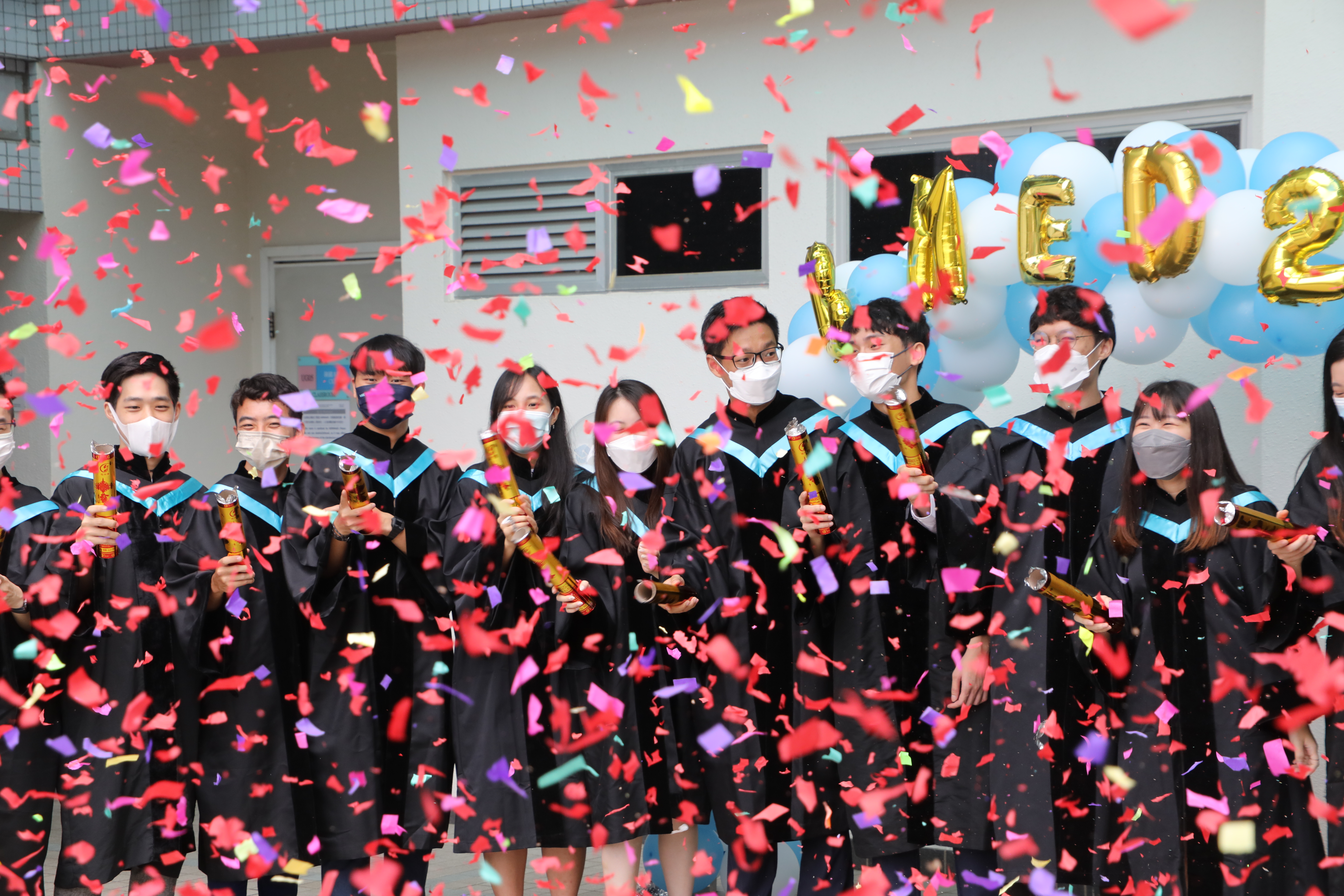Programmes
B.Ed. (Mathematics and Mathematics Education) is an interdisciplinary programme co-organized by the Faculty of Education and the Department of Mathematics, CUHK. It is a double major undergraduate programme. Students learn solid mathematical knowledge and receive theory-practice integrated teacher training. Teachers of this programme are well known scholars in mathematics, mathematics education or educational studies. We also engage in professional services of various types. By means of lectures, school experience and teaching practicum at secondary schools, our students acquire both mathematics and teacher professional knowledge, develop transferable skills of various types, and be equipped with the ability to assume leadership roles in mathematics teaching. Graduates will be awarded a Bachelor of Education degree with a double major in Mathematics and Mathematics Education, including a qualification equivalent to a Postgraduate Diploma in Education and will be qualified to teach in secondary schools.

Nurturing Mathematics Teachers with a Professional Attitude
The Bachelor of Education in Mathematics and Mathematics Education (BMED) programme was launched in 2012 in response to increasing demand for qualified subject-trained mathematics teachers.
Mathematics teachers who are well-versed in the subject and have received initial teacher training are highly sought by schools in Hong Kong and elsewhere. This five-year interdisciplinary double major programme aims to develop students with solid pedagogical content knowledge, hone their professional attitudes and skills, and provide them with practical field experience to teach in secondary schools.
The double major programme is offered by the Faculty of Education in collaboration with the Department of Mathematics. It emphasises training in both theoretical and practical areas. Graduates are awarded a Bachelor of Education Degree in Mathematics and Mathematics Education and a qualification equivalent to a Postgraduate Diploma in Education. Graduates are qualified to teach in secondary schools.
The BMED programme recruits students who are sagacious and passionate about mathematics teaching. As Gordon Yeung Wing Leung (a Year 5 BMED student) explains, “Throughout the five years, I received rigorous mathematical training, similar to a mathematics major. In addition to pedagogical training, I had the opportunity to take courses that looked at education issues in-depth, such as educational psychology, education system and thinking, and sociology of education.”
Students enrolled in this programme learn both mathematics and educational theories. Gordon finds the programme design challenging yet stimulating and rewarding; the interdisciplinary degree covers both qualitative and quantitative skills, with the content split between humanities and scientific work (and, of course, mathematics training). He said, “Besides the close connection with many schools in the territory, it is very helpful for us to keep updated with the practices, current trends, and focuses of different secondary schools.”
Further, BMED offers various courses for students to enhance their knowledge of advanced mathematics. These courses enable them to reflect on the nature of mathematics. Students’ development in all areas of mathematics is significant and rigorous, enabling them to see and teach mathematics more earnestly.
Students’ professional competency is developed through pedagogy courses and educational studies, both of which are taught by professors from the Faculty of Education and reinforced by a teaching practicum and research experience. In particular, the extent of classroom engagement between students and teachers is adjusted accordingly through different phases of school experience and the teaching practicum. In Years 1 and 2, students visit different types of schools to observe and learn about various school settings and teacher responsibilities. During Year 3, they connect with their assigned secondary schools to observe and participate in classroom and school activities from the perspectives of both teachers and students. The teaching practicum in Years 4 and 5 provides them with important experiential and field learning opportunities. They are assigned to teach in secondary schools under the guidance and supervision of their mentors, who are experienced teachers from their practicum schools.
 “This programme has enabled me to identify my interest in exploring how psychology and education interact to cognitively and affectively support students’ mathematical learning.”
“This programme has enabled me to identify my interest in exploring how psychology and education interact to cognitively and affectively support students’ mathematical learning.”
Gordon Yeung Wing Leung, a Year 5 BMED student.
This programme has changed Gordon’s view on the field of education. “I used to think teaching is just about work within the classroom. As a future teacher, all I needed to know was how to deliver the materials effectively, the types of students, and perhaps some education policies. However, the interdisciplinary design of the programme has enabled me to see the complexity and broader picture of teaching and education: for example, how different disadvantaged backgrounds, which at first glance may not relate to mathematical abilities, actually affect one’s mathematical performance.” Gordon thinks that BMED is not only a teacher training programme but also a valuable educational experience that enables students to view education from “behind the curtain”.
The unreserved support from the faculty and professors impressed Gordon the most. “The faculty and professors are very supportive of students and student initiatives. For example, during the pandemic, other students and I felt the need to support students in mathematics learning. Therefore, we advocated launching the BMED Academy, an online learning community aiming to gather the efforts of pre-service teachers to produce high-quality mathematics content. The faculty and professors showed unreserved support for the online learning initiative. They gave me many ideas, useful resources, and platforms to realise the ideas, which I am really grateful for!” Gordon also appreciates the close relationship among the BMED students. “Although the cohort size is small, it’s sweet. I assure you that the people you will stay with for the next five years are all like-minded, driven, and motivated.”
The majority of BMED graduates have joined the teaching force after graduation. With experience over time, some have assumed leading roles in mathematics teaching in secondary schools. With their solid knowledge and skills developed in this programme, graduates also have pursued careers in a wide range of professions, such as science and technology, finance and banking, civil service, and publishing. The programme also lays a firm foundation for graduates who desire to pursue advanced studies in mathematics education or related areas.

Beyond knowledge and skills, professionalism is an attitude. This is perhaps what our students treasure the most about BMED.
More BMED students’ voices can be accessed on YouTube.
Published: Summer 2017
Last Updated: Summer 2022
